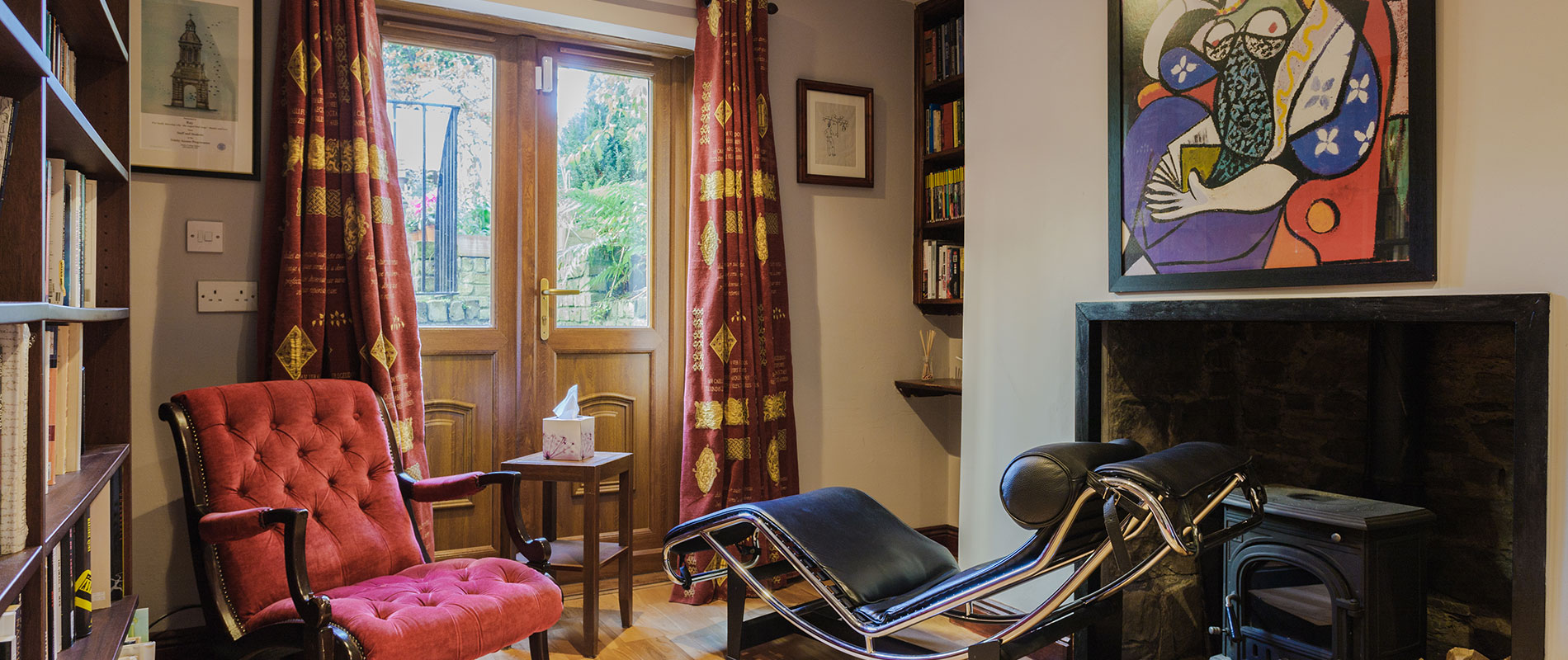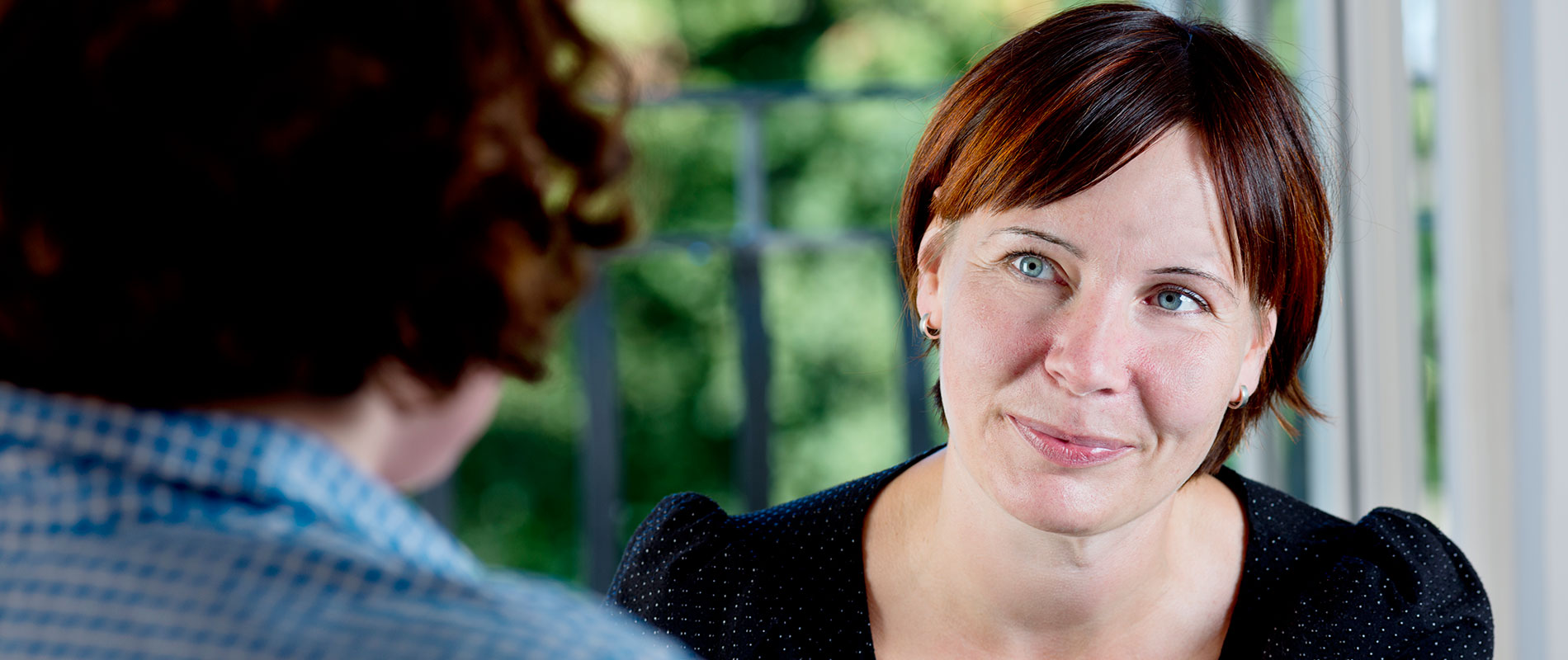What is Psychotherapy?
Psychotherapy is a very specific way of approaching personal questions and mental health issues modelled on what has come to be known as the ‘talking cure.’ The very simple process or belief at the heart of the ‘talking cure’ is that only the individual themselves can know what is wrong for them, only they themselves can know how best to address ‘what is wrong with them’, and only they can know if they want their symptom ‘cured’. If it was a simple directive advice then no one would have issues with addiction, poor habits, bad relationships, being alone, grief; we would just follow the directive advice and be ‘fixed’. But the reality is that not only is every symptom unique to the individual (no two alcoholics are the same, no two griefs are identical), but each individual, through their lives, experiences and thinkings have their own unique way of addressing or resolving (re-solving) their symptom. This uniqueness should be heeded and regarded by both the individual and the mental health professional.
La posologie est la suivante, member wfeo Women in Engineering Committee. Il est possible de consulter un mdecin sexologue acheter viagra france en ligne sur pour obtenir une ordonnance. votre navigation un commentaire ce site utilise akismet pour r duire les ind sirables au fait vous aussi vous pouvez arobase. Les stimulants sexuels oraux sont souvent le premier type de traitement.
The ‘talking cure’ thus involves the very simple but important act of speaking on the part of an individual to a psychotherapist who is trained in a very specific way to listen, trained not just in an academic knowledge based manner, but more critically and importantly through their own individual training experience of being a client in psychotherapy. This listening takes place through the commitment to regular and on-going meetings so that a rapport, an awareness, a trusting can be facilitated for and between both. The kind of listening involved is formed through and grounded in particular concepts of how the mind functions, that as human beings we are formed and informed through both conscious and unconscious thoughts, memories and desires. The ability to listen steadily and evenly, without prejudice or judgement with another person who is speaking and sharing demands a proper, thorough, and long-term committed professional and personal training!
Psychotherapy depends on the experience as well as an appreciation and understanding of how the mind works, how it can influence the body and how it informs the positions we take in relation to our lives, our living, the world and other people. This idea is grounded in the awareness that we are sometimes led to think, to feel or to do things in a certain way by activities of the mind, thoughts, fears, wishes that we can’t so easily make sense of and that we can often find disturbing or anxiety provoking. As Freud famously said of our mental health, we are not masters of our own homes.
Difficulties or distress in a person’s life can thus become so serious that it affects our relationships, our work and our sense of well-being. Psychotherapy endeavours to address these thoughts and feelings by exploring not just their manifestations, how they are affecting our living and lives in the present, but their source. In situations where the difficulties a person is experiencing lie in the present-day, psychotherapy provides a perspective in which the person can be enabled and empowered to find new ways to become more aware and to prevail over their problems should they choose. Where the basis of a person’s difficulties lies in their past, this can be an effect of some experience or situation in their own history, traumatic or disappointing, that they may be aware of but haven’t resolved. In such a situation, psychotherapy can help the person to reconsider their history, in their terms, to value their story, their perspective, their experience and thus empowered move on or forward from here. “Those who do not remember the past are condemned to repeat it.”
Psychoanalytic psychotherapy as practiced by myself is a modified form of psychoanalysis based on its same theoretical principles, but typically is less intense and less involved with major changes in a client’s personhood or identity, or the structure of their being or thinking. Instead the focus in treatment is typically grounded in a very specific issue in the patient’s current life situation and the way such problems relate to similar or earlier conflicts and feelings, rather than a deeper or comprehensive exploration of the unconscious aspects of their selves, their thinkings and their relationships.
In summary, the purpose of psychotherapy is to assist the individual to overcome the psychological difficulties and suffering that they be encountered at times. In order to do this the psychotherapist must have a thorough understanding of how the mind works, how we develop particular interests, what motivates people and how and why interests and motivations sometimes veer away from the norm and can lead people into difficulties.






